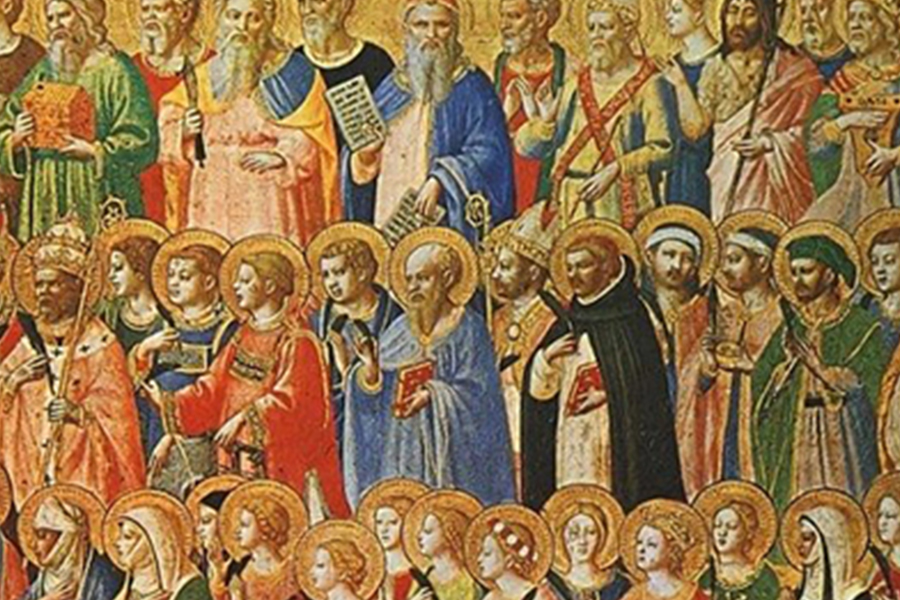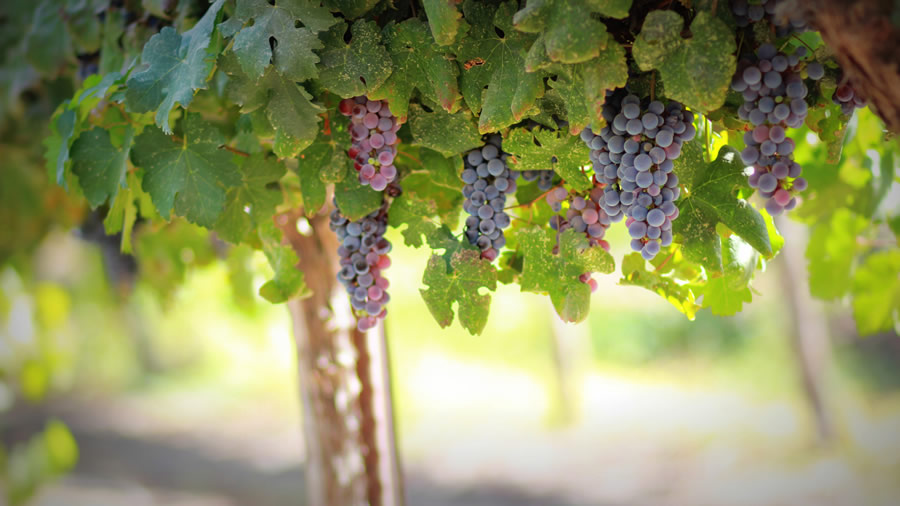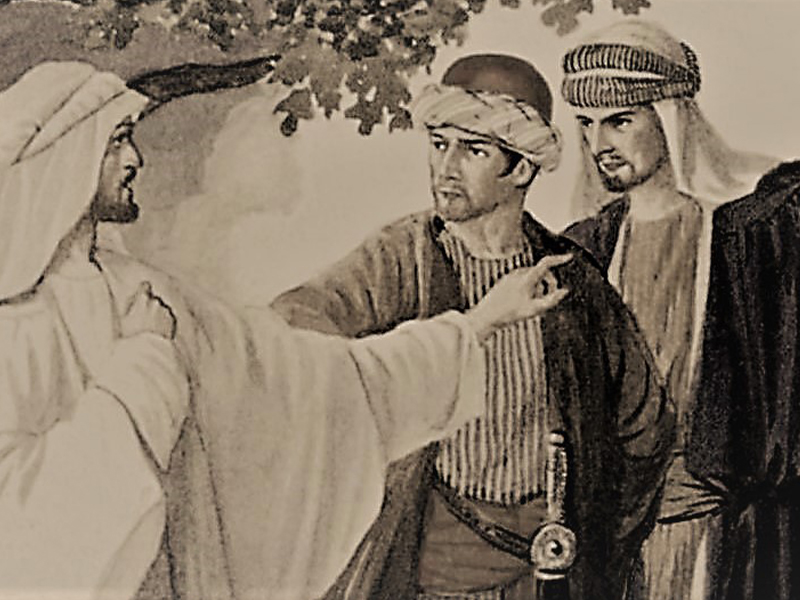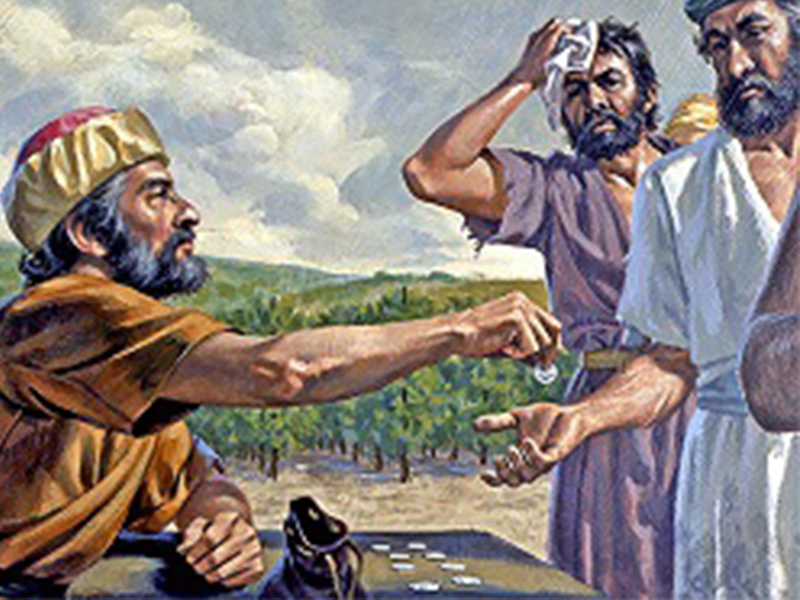St. Francis of Assisi Weekly Reflections

All Saints
11-01-2020Weekly ReflectionWe Celebrate Worship Resource, Vol. 45, No. 3It may surprise you to learn that over ten thousand men and women have been canonized as saints. It would not surprise the author of Revelation, however. In his vision of heaven, “a great, multitude, which no one could count, from every nation, race, people, and tongue,” stood before the throne of God (Revelation 7:9). Since we believe that the saints are untied with God in heaven, the Church’s formally recognized saints alone make a great multitude before God. John’s first letter assures us that we are all children of God and will eventually see the face of God, something for which we have longed for countless generations. In the Beatitudes, Jesus describes those who are blessed by God. They are the people whose values are the opposite of society’s. They are poor in spirit because they recognize their dependency on God. They mourn because they feel acutely the suffering of their neighbor. They are meek for they realize that they are but one person in a world of billions. They seek justice as they would seek a physical need like food or drink. In the end, they will be comforted by God, finding satisfaction in the kingdom of heaven.
How can live out the Beatitudes in your own life?
Totos los Santos
Quizás le sorprenda saber que más de diez mil hombres y mujeres han sido canonizados como santos. Sin embargo, esta cantidad no le sorprendería al autor de el Apocalipsis. En su visión del cielo, “vio una muchedumbre tan grande, que nadie podía contarla, de todas las naciones y razas, de todos los pueblos y lenguas”, estaban de pie ante el trono de Dios (Apocalipsis 7:9). Dado que creemos que los santos están desatados con Dios en el cielo, solo los santos reconocidos formalmente de la Iglesia forman una gran multitud ante Dios. La primera carta de Juan nos asegura que todos somos hijos de Dios y que eventualmente veremos el rostro de Dios, algo que hemos anhelado durante incontables generaciones. En las Bienaventuranzas, Jesús describe a aquellos que son bendecidos por Dios. Son las personas cuyos valores son opuestos a los de la sociedad. Son pobres de espíritu porque reconocen su dependencia de Dios. Lloran porque sienten agudamente el sufrimiento de su vecino. Son mansos porque se dan cuenta de que son una sola persona en un mundo de miles de millones. Buscan justicia como buscarían una necesidad física como comida o bebida. Al final, Dios los consolará y encontrarán satisfacción en el reino de los cielos.
¿Cómo puedes vivir las Bienaventuranzas en tu propia vida?
Celebramos el Recurso de Adoración, Vol. 45, No. 3

We are Called to be Compassionate
10-25-2020Weekly ReflectionWe Celebrate Worship Resource, Vol. 45, No. 3Love of God and love of neighbor are two constants, the two beams of light illuminating the path for us on our journey. The two commandments Jesus identifies as the greatest are each taken from the Torah—what we know as the first five books of the Bible. We hear some of their implications in the first reading. You shall not mistreat an alien. Why not? Because you were once an alien yourself. Hundreds of years later, Paul was an alien in Thessalonica. The hospitable way he was welcomed by the Thessalonians was to be praised. They in turn became a model for those in the neighboring regions of Macedonia and Achaia. We have been, and in some ways still are, aliens ourselves, in time if not in place, for our towns, our nation, and our world have changed dramatically in the years since we were born. We may feel like aliens in a new city, workplace or social setting, or simply by living in the 2020s. But we are not alone. God hears our cries, “for I am compassionate” (Exodus 22:26). So too are we called to be filled with compassion, to love God and love our neighbor, be they alien or not, for they are us and we are them.
How can your love of God and neighbor be a model for others?
Somos Llamados a ser Misericordiosos
Ei amor a Dios y el amor al prójimo son dos constantes, los dos rayos de luz que nos iluminan el camino. Los dos mandamientos que Jesús identifica como los más importantes están tomados de la Torá, lo que conocemos como los primeros cinco libros de la Biblia. Escuchamos algunas de sus implicaciones en la primera lectura. No maltratarás a un extranjero. ¿Por qué no? Porque una vez fuiste extranjero tú también. Cientos de años después, Pablo era un extranjero en Tesalónica. La forma hospitalaria en que fue recibido por los tesalonicenses era digna de elogio. A su vez, se convirtieron en un modelo para los de las regiones vecinas de Macedonia y Acaya. Hemos sido, y de alguna manera todavía somos, extranjeros nosotros también, en tiempo si no en lugar, porque nuestros pueblos, nuestra nación y nuestro mundo han cambiado dramáticamente en los años desde que nacimos. Podemos sentirnos como extranjeros en una nueva ciudad, un lugar de trabajo o entorno social, o simplemente viviendo en la década de 2020. Pero no estamos solos. Dios escucha nuestros clamores, “porque soy misericordioso” (Éxodo 22:26). Así también estamos llamados a estar llenos de compasión, a amar a Dios y a nuestro prójimo, sean extraños o no, porque ellos son nosotros y nosotros somos ellos.
¿Cómo puede tu amor a Dios y al prójimo ser un modelo para los demás?

Repay to God What Belongs to God
10-18-2020Weekly ReflectionWe Celebrate Worship Resource, Vol. 45, No. 3Who is ultimately responsible for our glorious deeds? Cyrus the Great created an empire larger than any that had ever existed. Uniquely, he allowed the conquered peoples to continue practicing their own religious and traditions. Therefore, his defeat of Babylon enabled the people of Judah to return home and Jerusalem to be rebuilt. Despite the fact that he was considered a pagan, Isaiah calls him the Lord’s anointed, the only time in scripture that a foreigner is given such status. How could Isaiah say such a thing? It is because there is no God but the Lord, so no one else could ultimately be responsible for this saving act. Though Cyrus neither knew nor accepted it, clearly the Lord armed him, grasped his hand, and restored the promised land to the Chosen People. Paul and his fellow missionaries brought the gospel to Thessalonica, but he reminds them that it also came through the power of the Holy Spirit. Finally, Matthew tells of Jesus’ clever response to his opponents’ attempt to entrap him regarding Caesar’s tax. Caesar may be paid the coin with his own image, but all of humanity was created in the image of God, so all of us are called to give ourselves to God, producing fruit for God’s kingdom.
Are you repaying to God what belongs to God? How can you spend yourself producing fruit?
Den a Dios Lo que es de Dios
¿Quién es el responsable de nuestras gloriosas obras? Ciro el Grande creó un imperio más grande que cualquier otro que haya existido. De manera única, permitió que los pueblos conquistados siguieran practicando sus propias religiones y tradiciones. Por lo tanto, su derrota de Babilonia permitió que el pueblo de Judá regresara a casa y que Jerusalén fuera reconstruida. A pesar de que se le consideraba un pagano, Isaías lo llama el ungido del Señor, la única vez en las Escrituras que a un extranjero se le da tal estatus. ¿Cómo pudo Isaías decir tal cosa? Es porque no hay más Dios que el Señor, por lo que nadie más podría ser responsable de este acto de salvación. Aunque Ciro no lo sabía ni lo aceptó, claramente el Señor lo armó, tomó su mano y restauró la tierra prometida al Pueblo Elegido. Pablo y sus compañeros misioneros llevaron el evangelio a Tesalónica, pero les recuerda que también vino a través del poder del Espíritu Santo. Finalmente, Mateo habla de la inteligente respuesta de Jesús al intento de sus oponentes de atraparlo con respecto al impuesto de César. A César se le puede pagar la moneda con su propia imagen, pero toda la humanidad fue creada a imagen de Dios, por lo que todos estamos llamados a entregarnos a Dios, produciendo fruto para el reino de Dios.
¿Le estás pagando a Dios lo que le pertenece? ¿Cómo puedes dedicarte a producir fruta?

How do you “Put on Christ?
10-11-2020Weekly ReflectionWe Celebrate Worship Resource, Vol. 45, No. 3The first lesson we can glean from today's readings is cause for celebration: everyone is invited to God's feast. Isaiah writes that the Lord "will provide for all peoples,"from all nations, a feast that celebrates an end to sorrow, an end to death (Isaiah 25:6). In the psalm we sing that we all shall live in the Lord's house all the days of our lives. In the Gospel, the "bad and good alike" are all invited to the wedding banquet (Matthew 22:10). What glorious news! We get to go even if we've sinned. But the second lesson today is sobering. Not everyone is allowed to stay. The king in Jesus' parable casts out one guest who was not dressed appropriately. Really? Recall a different parable in which a rich man dressed in the finest garments who is suffering in a place of torment sees the beggar Lazarus, dressed in rags, resting in the bosom of Abraham. Now there's a dress code? Perhaps it helps to realize that when we were baptized, we were told that we put on Christ, that we clothe ourselves in Christ. Therefore, whether we wear gowns or rags, let us first put on that unstained garment of our baptism, symbolizing the new life to which we are called. After all, Saint Paul was in prison when he wrote to the Philippians. But even in prison clothes he radiated the "glorious riches" of Christ (4:19).
How do you go about "putting on Christ," so that you can give witness to God's grace in your life?
¿Como te Vistes de Cristo”?
La primera lección que Podemos extraer de las lecturas de hoy es motivo de celebración: todos están invitados a la fiesta de Dios. Isaías escribe que el Señor “proveerá para todos los pueblos”, de todas las naciones, una fiesta que celebra el fin del dolor, el fin de la muerte (Isaías 25:6). En el salmo cantamos que todos viviremos en la casa del Señor todos los días de nuestra vida. En el Evangelio, se invita a “buenos y malos” al banquete de bodas (Mateo 22:10). ¡Qué gloriosa noticia! Podemos ir incluso si hemos pecado. Pero la segunda lección de hoy es seria. No todo el mundo puede quedarse. El rey en la parábola de Jesús expulsa a un invitado que no estaba vestido apropiadamente. ¿De veras? Recuerde otra parábola en la que un hombre rico vestido con las mejores vestiduras que sufre en un lugar de tormento ve al mendigo Lázaro, vestido con harapos, descansando en el seno de Abraham. ¿Ahora hay un código de vestimenta? Quizás nos ayude darnos cuenta de que cuando nos bautizamos, se nos dijo que nos vistiéramos de Cristo. Por lo tanto, ya sea que usemos túnicas o trapos, primero pongámonos esa prenda inmaculada de nuestro bautismo, que simboliza la nueva vida a la que estamos llamados. Después de todo, San Pablo estaba en prisión cuando escribió a los Filipenses. Pero incluso con ropa de prisión irradiaba las “gloriosas riquezas” de Cristo (4:19).
¿Cómo puedes “vestirte de Cristo” para poder dar testimonio de la gracia de Dios en tu vida?

Are You Producing Fruit?
10-04-2020Weekly ReflectionWe Celebrate Worship Resource, Vol. 45, No. 3When Jesus began the parable we hear today, with its vineyard, landowner, wine press, and tower, he would have known that the chief priests and elders would immediately recall the passage from Isaiah we hear in the first reading. Isaiah had pulled a fast one on his audience, asking them to pass judgment before telling them who’s who. Only at the end did the people realize that Isaiah’s “friend” is the Lord, the vineyard is the land of Judah, the tower is David’s throne, and the wild (Hebrew beushim, meaning “stinking”) grapes are the bloodshed and outcry of the people. God looked for justice (good grapes), but there was none. Into this allegory Jesus introduces new characters: tenants, servants, and the landowner’s son. Again, the listeners do not realize who’s who and they end up condemning themselves. Religious leaders (tenants) habitually attacked God’s messengers and prophets (servants), and eventually God’s own Son. Jesus tells them that instead the kingdom will be entrusted to those who will produce good fruit. Again, per Isaiah, this means justice and peace. Paul, whose missions always produced harvests of good fruit, guides us: seek truth and honor, justice and purity, beauty and grace.
What can you do to produce fruit for the kingdom of God?
¿Estás Produciento Fruto?
Cuando Jesús comenzó la parábola que escuchamos hoy, con la viña, el propietario, el lagar y la torre, habría sabido que los principales sacerdotes y los ancianos recordarían de inmediato el pasaje de Isaías que escuchamos en la primera lectura. Isaías se había burlado de su audiencia, pidiéndoles que emitieran un juicio antes de decirles quién es quién. Solo al final la gente se dio cuenta de que el “amigo” de Isaías es el Señor, la viña es la tierra de Judá, la torre es el trono de David, y las uvas (hebreo beushim, que significa “apestoso”) silvestres son el derramamiento de sangre y el clamor de la gente. Dios buscó justicia (buenas uvas), pero no la hubo. En esta alegoría, Jesús introduce nuevos personajes: arrendatarios, sirvientes y el hijo del terrateniente. Nuevamente, los oyentes no se dan cuenta de quién es quién y terminan condenándose a sí mismos. Los líderes religiosos (inquilinos) atacaban habitualmente a los mensajeros y profetas (siervos) de Dios y, finalmente, al propio Hijo de Dios. Jesús les dice que, en cambio, el reino será confiado a aquellos que produzcan buenos frutos. Nuevamente, según Isaías, esto significa justicia y paz. Pablo, cuyas misiones siempre produjeron cosechas de buenos frutos, nos guía: busca la verdad y el honor, la justicia y la pureza, la belleza y la gracia.
¿Qué puedes hacer para producir fruto para el reino de Dios?

Humbly Regard Others
09-27-2020Weekly ReflectionWe Celebrate Worship Resource, Vol. 45, No. 3In today’s Gospel one son says no, but relents and does the work as his father asked. The other says he will, but doesn’t. Even Jesus’ opponents recognize that it was the first son who did the right thing. Matthew repeatedly emphasized Jesus’ call to action. He alone told the story of the Last Judgment. The Son of Man did not say to those on his right, “I was hungry and you told me you would give me food. I was thirsty and you promised to get me something to drink.” No, words without action are empty. After all, we are called to do the Lord’s work. If at first we refuse or say no, we are not forever lost. Ezekiel praises the one who turns away from wickedness to do what is right and just. The psalmist asks God to overlook the sins of his youth and his frailties. Saint Paul gives us good advice: “Humbly regard others as more important than yourselves,” doing things for others rather than selfishly for yourself (Philippians 2:3). No matter how we have responded in the past, today we can change. Today we can choose to join the work in the vineyard of the Lord.
What can you do to help someone to whom you said no in the past?
En Humildad Considere a los Demás
En el evangelio de hoy, un hijo dice que no, pero cede y hace el trabajo como le pidió su padre. El otro dice que lo hará, pero no lo hace. Incluso los oponentes de Jesús reconocen que fue el primer hijo quien hizo lo correcto. Mateo enfatizó repetidamente el llamado a la acción de Jesús. Él solo contó la historia del Juicio Final. El Hijo del Hombre no dijo a los de su derecha: “Tenía hambre y me dijiste que me darías de comer. Tenía sed y prometiste traerme algo de beber”. No, las palabras sin acción están vacías. Después de todo, estamos llamados a hacer la obra del Señor. Si al principio nos negamos o decimos que no, no estaremos perdidos para siempre. Ezequiel alaba al que se aparta de la maldad para hacer lo recto y justo. El salmista le pide a Dios que pase por alto los pecados de su juventud y sus debilidades. San Pablo nos da un buen consejo: “Antes bien, por humildad, cada uno considere a los demás como superiores a sí mismo”, y no busque su propio interés, sino el del prójimo. (Filipenses 2:3). No importa cómo hayamos respondido en el pasado, hoy podemos cambiar. Hoy podemos optar por unirnos a la obra en la viña del Señor.
¿Qué puedes hacer para ayudar a alguien a quien le dijiste que no en el pasado?

“It’s Not Fair!”
09-20-2020Weekly ReflectionWe Celebrate Worship Resource, Vol. 45, No. 3“It’s not fair!” We hear it at home, we hear it at work, we hear it on the news. The landowner in Jesus’ parable heard it, too. Those exhausted from a full day’s work resented the landowner for paying the latecomers the same amount. “You have made them equal to us” (Matthew 20:12). The landowner defended himself by pointing out that they all received what they were promised. Moreover, his generosity took nothing away from what anyone earned. Isaiah said it well in today’s first reading: “My thoughts are not your thoughts, nor are your ways my ways, says the Lord” (Isaiah 55:8) From our perspective we may never understand God’s justice or fairness. Perhaps it is easier to understand God’s generosity. God’s generosity knows no bounds. Not only did the landowner give a full day’s wage to those who started at five, but these are folks who had been rejected by everyone else. Quite likely they were undesirable: lazy, inferior, disabled, or just unfit for the work. But the landowner left no one behind. Life is not fair, but that’s just our perspective. God is generous beyond expectation, by any perspective.
When did you last say, “It’s not fair!”? How can you accept God’s generosity?
“¡No es Justo!”
“¡No es justo!” Lo escuchamos en casa, lo escuchamos en el trabajo, lo escuchamos en las noticias. El propietario de la parábola de Jesús también lo escuchó. Aquellos agotados por el trabajo de un día completo se resintieron con el propietario por pagarle la misma cantidad a los que llegaron tarde. “Les pagas lo mismo que a nosotros” (Mateo 20:12). El propietario se defendió señalando que todos recibieron lo prometido. Además, su generosidad no quitó nada de lo que ganaba nadie. Isaías lo dijo bien en la primera lectura de hoy: “Mis pensamientos no son los pensamientos de ustedes, sus caminos no son mis caminos, dice el Señor” (Isaías 55:8). Desde nuestra perspectiva, es posible que nunca entendamos la justicia o la equidad de Dios. Quizás sea más fácil comprender la generosidad de Dios. La generosidad de Dios no conoce límites. El propietario no solo dio el salario de un día completo a los que comenzaron a las cinco, sino que son personas que habían sido rechazadas por todos los demás. Es muy probable que fueran indeseables: perezosos, inferiores, discapacitados o simplemente no aptos para el trabajo. Pero el propietario no dejó a nadie atrás. La vida no es justa, pero esa es nuestra perspectiva. Dios es generoso más allá de las expectativas, desde cualquier perspectiva.
¿Cuándo fue la última vez que dijiste: “¡No es justo!” ¿Cómo puedes aceptar la generosidad de Dios?

Forgive Your Brother From Your Heart
09-13-2020Weekly ReflectionWe Celebrate Worship Resource, Vol. 45, No. 3Peter probably expected that Jesus would be impressed with the generosity of his suggestion. Forgive someone seven times for one sin! Seven was considered a “perfect” number, connoting completeness, so seven times implied complete forgiveness. But Jesus shocks Peter: “not seven times but seventy- seven times” (Matthew 18:22). Jesus calls us to be the king in the parable, moved with compassion and liberal with forgiveness, forgiving unpayable debts. He didn’t just forgive the servant seventy- seven times, he literally gave him and his family their life back. Jesus wants Peter—and us—to do the same. With a persistent attitude of forgiveness and a genuine desire to make things whole again, we want each of our relationships to go on without an obstacle in the way. This is the completeness God desires. Sirach wisely observes that we must be forgiving if we are to expect forgiveness from God. After all, if God forgives us for our faults and failings, how can we deny forgiveness to one another? Like God, may we be kind and merciful to others, slow to anger and rich in compassion.
Who needs your forgiveness? Can you allow yourself to forgive always?
Perdona De Corazón a Tu Hermano
Pedro probablemente esperaba que Jesús quedara impresionado por la generosidad de su sugerencia. ¡Perdona a alguien siete veces por un pecado! Siete se consideraba un número “perfecto”, que connotaba integridad, por lo que siete veces implicaba un perdón total. Pero Jesús sorprende a Pedro: “no siete, sino setenta y siete veces” (Mateo 18:22). Jesús nos llama a ser el rey de la parábola, movidos con compasión y generosos con el perdón, perdonando las deudas impagables. No se limitó a perdonar al sirviente setenta y siete veces, sino que literalmente les devolvió la vida a él y a su familia. Jesús quiere que Pedro, y nosotros, hagamos lo mismo. Con una actitud persistente de perdón y un deseogenuino de hacer las cosas completas nuevamente, queremos que cada una de nuestras relaciones continúe sin obstáculos en el camino. Esta es la plenitud que Dios desea. Eclesiástico observa sabiamente que debemos perdonar si vamos a esperar el perdón de Dios. Después de todo, si Dios nos perdona por nuestras faltas y fracasos, ¿cómo Podemos negarnos el perdón unos a otros? Que como Dios, seamos amables y misericordiosos con los demás, lentos para la ira y ricos en compasión.
¿Quién necesita tu perdón? ¿Puedes permitirte perdonar siempre?

You Shall Love your Neighbor as Yourself
09-06-2020Weekly ReflectionWe Celebrate Worship Resource, Vol. 45, No. 3God calls us to look out for each other. We must not cut ourselves off from our neighbor, because we are responsible for one another. The Lord appoints Ezekiel “watchman for the house of Israel” (Ezekiel 33:7) to warn the sinful of the consequences of their sins. What’s more, God will hold Ezekiel responsible for his neighbor’s wrongs if he does not speak out. The Lord is telling him he cannot look the other way. Engage the sinner, counsel them to change, show the way. In the Gospel, Jesus adds another step. Begin by speaking out yourself, but if that is ineffective, draw others to your cause. For it is then, when two or more are united in need and gathered together in Jesus’ name, that he is there with them. When we join with our neighbor, Jesus is in our midst. Saint Paul realizes the importance of our relationship with our neighbor when he sums up the commandments as Jesus had: “You shall love your neighbor as yourself” (Romans 13:9). We are all God’s children, brothers and sisters called to care for one another even when we have been wronged.
Whom do you need to confront or what do you need to speak out about? How can you do so constructively?
Amarás a tu Prógimo como a Ti Mismo
Dios nos llama a cuidarnos unos a otros. No debemos aislarnos de nuestro prójimo, porque somos responsables unos de los otros. El Señor nombra a Ezequiel “centinela para la casa de Israel” (Ezequiel 33:7) para advertir a los pecadores de las consecuencias de sus pecados. Es más, Dios hará responsable a Ezequiel por los males de su vecino si no habla. El Señor le está diciendo que no puede mirar hacia otro lado. Involucrar al pecador, aconsejarle que cambie, mostrarle el camino. En el Evangelio, Jesús agrega otro paso. Empiece por hablar usted mismo, pero si eso no es efectivo, atraiga a otros a su causa. Porque es entonces, cuando dos o más se unen en necesidad y se reúnen en el nombre de Jesús, que él está allí con ellos. Cuando nos unimos a nuestro prójimo, Jesús está entre nosotros. San Pablo se da cuenta de la importancia de nuestra relación con nuestro prójimo cuando resume los mandamientos como lo hizo Jesús: “Amarás a tu prójimo como a ti mismo” (Romanos 13:9). Todos somos hijos de Dios, hermanos y hermanas llamados a cuidarnos unos a otros incluso cuando se nos ha agraviado.
¿A quién necesitas confrontar o de qué necesitas hablar? ¿Cómo puedes hacerlo de manera constructiva?

Humbly Regard Others
09-27-2020Weekly ReflectionWe Celebrate Worship Resource, Vol. 45, No. 3In today’s Gospel one son says no, but relents and does the work as his father asked. The other says he will, but doesn’t. Even Jesus’ opponents recognize that it was the first son who did the right thing. Matthew repeatedly emphasized Jesus’ call to action. He alone told the story of the Last Judgment. The Son of Man did not say to those on his right, “I was hungry and you told me you would give me food. I was thirsty and you promised to get me something to drink.” No, words without action are empty. After all, we are called to do the Lord’s work. If at first we refuse or say no, we are not forever lost. Ezekiel praises the one who turns away from wickedness to do what is right and just. The psalmist asks God to overlook the sins of his youth and his frailties. Saint Paul gives us good advice: “Humbly regard others as more important than yourselves,” doing things for others rather than selfishly for yourself (Philippians 2:3). No matter how we have responded in the past, today we can change. Today we can choose to join the work in the vineyard of the Lord.
What can you do to help someone to whom you said no in the past?
En Humildad Considere a los Demás
En el evangelio de hoy, un hijo dice que no, pero cede y hace el trabajo como le pidió su padre. El otro dice que lo hará, pero no lo hace. Incluso los oponentes de Jesús reconocen que fue el primer hijo quien hizo lo correcto. Mateo enfatizó repetidamente el llamado a la acción de Jesús. Él solo contó la historia del Juicio Final. El Hijo del Hombre no dijo a los de su derecha: “Tenía hambre y me dijiste que me darías de comer. Tenía sed y prometiste traerme algo de beber”. No, las palabras sin acción están vacías. Después de todo, estamos llamados a hacer la obra del Señor. Si al principio nos negamos o decimos que no, no estaremos perdidos para siempre. Ezequiel alaba al que se aparta de la maldad para hacer lo recto y justo. El salmista le pide a Dios que pase por alto los pecados de su juventud y sus debilidades. San Pablo nos da un buen consejo: “Antes bien, por humildad, cada uno considere a los demás como superiores a sí mismo”, y no busque su propio interés, sino el del prójimo. (Filipenses 2:3). No importa cómo hayamos respondido en el pasado, hoy podemos cambiar. Hoy podemos optar por unirnos a la obra en la viña del Señor.
¿Qué puedes hacer para ayudar a alguien a quien le dijiste que no en el pasado?

“It’s Not Fair!”
09-20-2020Weekly ReflectionWe Celebrate Worship Resource, Vol. 45, No. 3“It’s not fair!” We hear it at home, we hear it at work, we hear it on the news. The landowner in Jesus’ parable heard it, too. Those exhausted from a full day’s work resented the landowner for paying the latecomers the same amount. “You have made them equal to us” (Matthew 20:12). The landowner defended himself by pointing out that they all received what they were promised. Moreover, his generosity took nothing away from what anyone earned. Isaiah said it well in today’s first reading: “My thoughts are not your thoughts, nor are your ways my ways, says the Lord” (Isaiah 55:8) From our perspective we may never understand God’s justice or fairness. Perhaps it is easier to understand God’s generosity. God’s generosity knows no bounds. Not only did the landowner give a full day’s wage to those who started at five, but these are folks who had been rejected by everyone else. Quite likely they were undesirable: lazy, inferior, disabled, or just unfit for the work. But the landowner left no one behind. Life is not fair, but that’s just our perspective. God is generous beyond expectation, by any perspective.
When did you last say, “It’s not fair!”? How can you accept God’s generosity?
“¡No es Justo!”
“¡No es justo!” Lo escuchamos en casa, lo escuchamos en el trabajo, lo escuchamos en las noticias. El propietario de la parábola de Jesús también lo escuchó. Aquellos agotados por el trabajo de un día completo se resintieron con el propietario por pagarle la misma cantidad a los que llegaron tarde. “Les pagas lo mismo que a nosotros” (Mateo 20:12). El propietario se defendió señalando que todos recibieron lo prometido. Además, su generosidad no quitó nada de lo que ganaba nadie. Isaías lo dijo bien en la primera lectura de hoy: “Mis pensamientos no son los pensamientos de ustedes, sus caminos no son mis caminos, dice el Señor” (Isaías 55:8). Desde nuestra perspectiva, es posible que nunca entendamos la justicia o la equidad de Dios. Quizás sea más fácil comprender la generosidad de Dios. La generosidad de Dios no conoce límites. El propietario no solo dio el salario de un día completo a los que comenzaron a las cinco, sino que son personas que habían sido rechazadas por todos los demás. Es muy probable que fueran indeseables: perezosos, inferiores, discapacitados o simplemente no aptos para el trabajo. Pero el propietario no dejó a nadie atrás. La vida no es justa, pero esa es nuestra perspectiva. Dios es generoso más allá de las expectativas, desde cualquier perspectiva.
¿Cuándo fue la última vez que dijiste: “¡No es justo!” ¿Cómo puedes aceptar la generosidad de Dios?

Forgive Your Brother From Your Heart
09-13-2020Weekly ReflectionWe Celebrate Worship Resource, Vol. 45, No. 3Peter probably expected that Jesus would be impressed with the generosity of his suggestion. Forgive someone seven times for one sin! Seven was considered a “perfect” number, connoting completeness, so seven times implied complete forgiveness. But Jesus shocks Peter: “not seven times but seventy- seven times” (Matthew 18:22). Jesus calls us to be the king in the parable, moved with compassion and liberal with forgiveness, forgiving unpayable debts. He didn’t just forgive the servant seventy- seven times, he literally gave him and his family their life back. Jesus wants Peter—and us—to do the same. With a persistent attitude of forgiveness and a genuine desire to make things whole again, we want each of our relationships to go on without an obstacle in the way. This is the completeness God desires. Sirach wisely observes that we must be forgiving if we are to expect forgiveness from God. After all, if God forgives us for our faults and failings, how can we deny forgiveness to one another? Like God, may we be kind and merciful to others, slow to anger and rich in compassion.
Who needs your forgiveness? Can you allow yourself to forgive always?
Perdona De Corazón a Tu Hermano
Pedro probablemente esperaba que Jesús quedara impresionado por la generosidad de su sugerencia. ¡Perdona a alguien siete veces por un pecado! Siete se consideraba un número “perfecto”, que connotaba integridad, por lo que siete veces implicaba un perdón total. Pero Jesús sorprende a Pedro: “no siete, sino setenta y siete veces” (Mateo 18:22). Jesús nos llama a ser el rey de la parábola, movidos con compasión y generosos con el perdón, perdonando las deudas impagables. No se limitó a perdonar al sirviente setenta y siete veces, sino que literalmente les devolvió la vida a él y a su familia. Jesús quiere que Pedro, y nosotros, hagamos lo mismo. Con una actitud persistente de perdón y un deseogenuino de hacer las cosas completas nuevamente, queremos que cada una de nuestras relaciones continúe sin obstáculos en el camino. Esta es la plenitud que Dios desea. Eclesiástico observa sabiamente que debemos perdonar si vamos a esperar el perdón de Dios. Después de todo, si Dios nos perdona por nuestras faltas y fracasos, ¿cómo Podemos negarnos el perdón unos a otros? Que como Dios, seamos amables y misericordiosos con los demás, lentos para la ira y ricos en compasión.
¿Quién necesita tu perdón? ¿Puedes permitirte perdonar siempre?

You Shall Love your Neighbor as Yourself
09-06-2020Weekly ReflectionWe Celebrate Worship Resource, Vol. 45, No. 3God calls us to look out for each other. We must not cut ourselves off from our neighbor, because we are responsible for one another. The Lord appoints Ezekiel “watchman for the house of Israel” (Ezekiel 33:7) to warn the sinful of the consequences of their sins. What’s more, God will hold Ezekiel responsible for his neighbor’s wrongs if he does not speak out. The Lord is telling him he cannot look the other way. Engage the sinner, counsel them to change, show the way. In the Gospel, Jesus adds another step. Begin by speaking out yourself, but if that is ineffective, draw others to your cause. For it is then, when two or more are united in need and gathered together in Jesus’ name, that he is there with them. When we join with our neighbor, Jesus is in our midst. Saint Paul realizes the importance of our relationship with our neighbor when he sums up the commandments as Jesus had: “You shall love your neighbor as yourself” (Romans 13:9). We are all God’s children, brothers and sisters called to care for one another even when we have been wronged.
Whom do you need to confront or what do you need to speak out about? How can you do so constructively?
Amarás a tu Prógimo como a Ti Mismo
Dios nos llama a cuidarnos unos a otros. No debemos aislarnos de nuestro prójimo, porque somos responsables unos de los otros. El Señor nombra a Ezequiel “centinela para la casa de Israel” (Ezequiel 33:7) para advertir a los pecadores de las consecuencias de sus pecados. Es más, Dios hará responsable a Ezequiel por los males de su vecino si no habla. El Señor le está diciendo que no puede mirar hacia otro lado. Involucrar al pecador, aconsejarle que cambie, mostrarle el camino. En el Evangelio, Jesús agrega otro paso. Empiece por hablar usted mismo, pero si eso no es efectivo, atraiga a otros a su causa. Porque es entonces, cuando dos o más se unen en necesidad y se reúnen en el nombre de Jesús, que él está allí con ellos. Cuando nos unimos a nuestro prójimo, Jesús está entre nosotros. San Pablo se da cuenta de la importancia de nuestra relación con nuestro prójimo cuando resume los mandamientos como lo hizo Jesús: “Amarás a tu prójimo como a ti mismo” (Romanos 13:9). Todos somos hijos de Dios, hermanos y hermanas llamados a cuidarnos unos a otros incluso cuando se nos ha agraviado.
¿A quién necesitas confrontar o de qué necesitas hablar? ¿Cómo puedes hacerlo de manera constructiva?